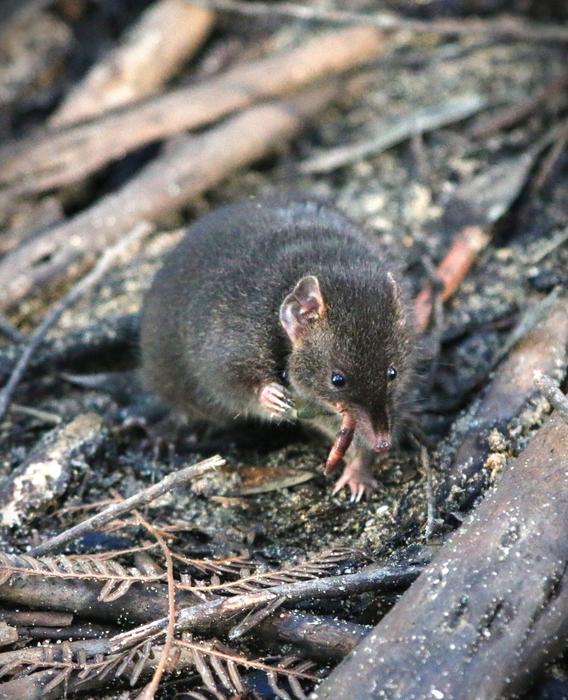All animals need sleep. When humans or animals don’t get enough, it can lead to trouble paying attention, irritability, and other ill effects. And yet, researchers reporting in the journal Current Biology on January 25 have made the surprising discovery that a small Australian marsupial called an antechinus will sacrifice hours of sleep per night to make more time for sex during the mating season.

Credit: Erika Zaid
All animals need sleep. When humans or animals don’t get enough, it can lead to trouble paying attention, irritability, and other ill effects. And yet, researchers reporting in the journal Current Biology on January 25 have made the surprising discovery that a small Australian marsupial called an antechinus will sacrifice hours of sleep per night to make more time for sex during the mating season.
The researchers say the multi-year study is the first to show direct evidence for this type of sleep restriction in any land-dwelling mammal. It’s a trade-off between sleep and reproduction that they say is likely driven by strong sexual selection.
“Using a combination of techniques, we showed that males lose sleep during the breeding season, with one male halving his sleep during this mating period,” says Erika Zaid (@zaid_erika) of La Trobe University in Melbourne, Australia. “In humans and other animals, restricting the normal amount of sleep leads to worse performance while awake, an effect that compounds night after night. And yet, the antechinus did just that: they slept 3 hours less per night, every night, for 3 weeks.”
Antechinus are bizarre in other ways, too. Males only reproduce once in their lifetime and live for only 1 year. Females can live for 2 years. Male antechinus typically die at the same time right after their sole short and intense mating season. During the breeding season, males compete physically and through sperm competition for access to as many females as possible to maximize their reproductive success. Their unusual life history is what drew the researchers led by John Lesku, also of La Trobe University, to study them.
“The males have one shot at fathering offspring during a single 3-week mating period,” Lesku says. “We found that male, but not female, dusky antechinuses, become restless during their only breeding season.”
The researchers used accelerometry to track the marsupials’ movements. They also used electrophysiology and metabolic measures to quantify how much the animals were sleeping. Those data showed that the males were sleeping 3 hours less every night for weeks.
The findings suggest that antechinus may have some way to thrive on less sleep during this time. The other possibility is that they accept the downsides of staying awake to improve their chances at paternity.
“It is actually a little surprising that these animals do not sacrifice even more sleep during the breeding season, since they will soon die anyways,” Zaid says. “In this way, keeping much of their sleep intact reveals the essential functions that sleep serves.”
It’s not clear what causes males to die after the breeding season. The researchers don’t suspect that sleep loss alone is the reason. In part that’s because the males they saw sleeping the least were not the ones in the worst condition.
The researchers want to learn more about how antechinus manage the sleep loss, which is at a level that would make people act as though they were legally intoxicated. “Are antechinus equally compromised, but just get on with it?” they ask. “Or are they resilient to the negative effects of sleep restriction?” These are exciting questions for future study.
######
This research was funded by the Australian Research Council, the Groningen Institute for Evolutionary Life Sciences, and the La Trobe University Department of Environment, Ecology and Evolution.
Current Biology, Zaid et al.: “Semelparous marsupials reduce sleep for sex.” https://www.cell.com/current-biology/fulltext/S0960-9822(23)01764-5
Current Biology (@CurrentBiology), published by Cell Press, is a bimonthly journal that features papers across all areas of biology. Current Biology strives to foster communication across fields of biology, both by publishing important findings of general interest and through highly accessible front matter for non-specialists. Visit http://www.cell.com/current-biology. To receive Cell Press media alerts, contact [email protected].
Journal
Current Biology
DOI
10.1016/j.cub.2023.12.064
Method of Research
Observational study
Subject of Research
Animals
Article Title
Semelparous marsupials reduce sleep for sex
Article Publication Date
25-Jan-2024
COI Statement
The authors declare no competing interests.




